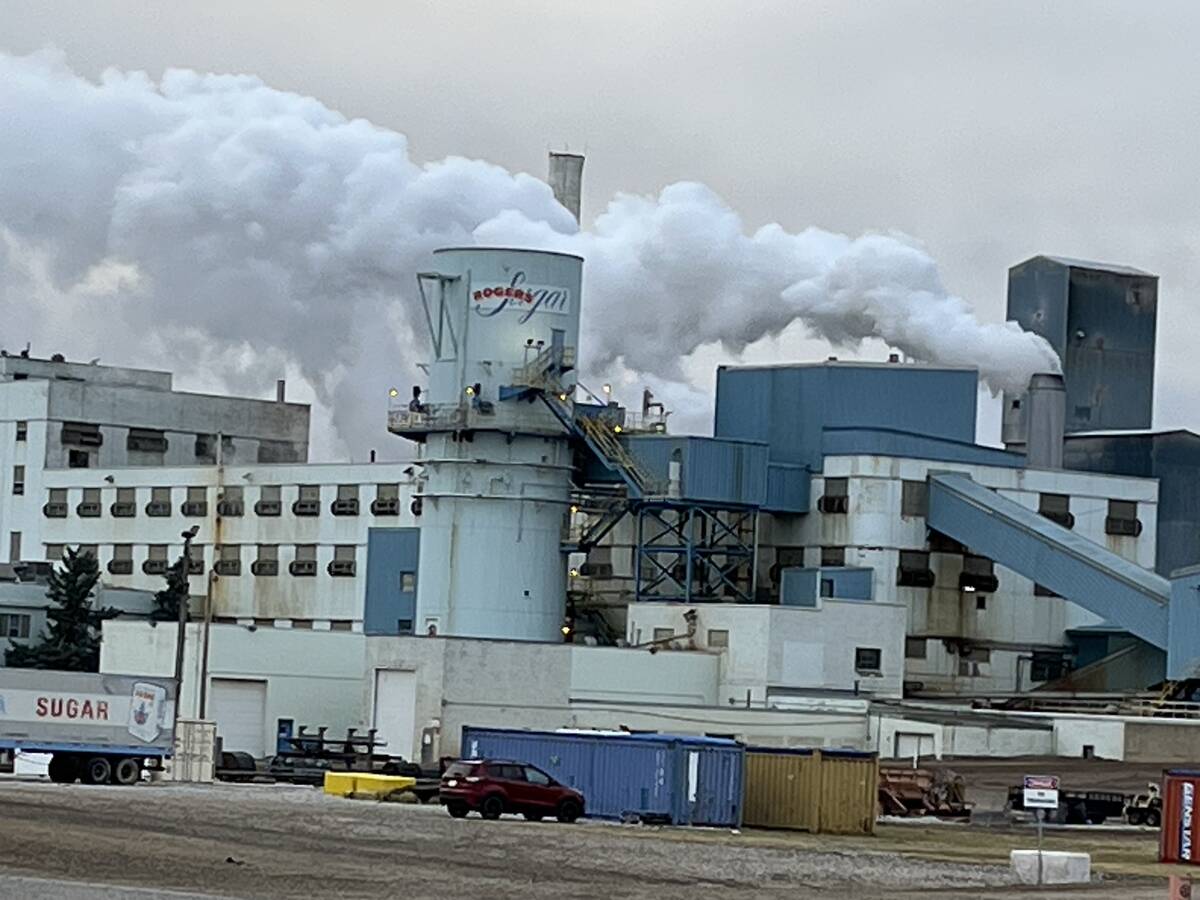SASKATOON – A farmer with $10,000 of equity in Saskatchewan Wheat Pool will soon be the owner of 831 shares in the company.
Just before Christmas, the pool announced that Class B non-voting shares will carry a price tag of $12 each when in-house trading among members begins Jan. 15.
At that point, the fate of the pool’s plan to become a publicly-traded company will rest in the members’ hands.
“They will have a choice that they’re going to have to make,” said Lyle Spencer, the pool’s chief financial officer. “Whether they’re going to retain their shares, buy more or sell some of them.”
Read Also

Sugar beet harvest underway in southern Alberta
Alberta Sugar Beet Growers hosts field tour to educate the public on the intricacies of the crop, its harvest process, and contracts with Lantic Sugar
An individual member’s equity will be converted into one Class A voting share worth $25 and however many Class B shares his or her remaining equity will buy.
Pool officials have said that if there is a large scale sell-off of shares by members, the planned conversion could be scrubbed.
The $12 share value was set by the pool’s board of directors following a valuation of the organization by RBC Dominion Securities Inc., which took into account everything from financial statements, budgets and strategic plans to cash flow projections, asset values and the state of the grain industry.
“They looked at a whole range of factors which could reasonably be expected to influence the price and therefore the value of the shares,” said Spencer.
When that process was completed, RBC Dominion valued the approximately 30 million Class B shares at between $11.50 and $14.50 each.
Spencer said the share price doesn’t mean the company is “worth” $360 million ($12 a share times 30 million shares.)
“Worth is a difficult concept to grapple with, because what something is worth at any given time is what an informed purchaser is willing to pay to an informed seller, and that can vary.”
According to the pool’s 1994-95 annual report, the co-op’s roughly 78,000 members held share capital totalling $305 million on July 31, 1995. That would indicate a share price of around $10, based on 30 million shares. But the directors made the decision to place the initial value of share capital about 20 percent higher, or roughly $360 million, for the purposes of in-house trading.
Normally a share value is not ascribed until shortly before a new stock is listed on the Toronto Stock Exchange, which in the pool’s case is slated to happen March 15. But the in-house trading period created a unique situation for the pool.
Spencer said while the share value will be fixed at $12 during the member trading period, that’s not necessarily what they’ll trade for on the opening day of trading on the TSE.
“Once they’re available for listing, what’s going to happen is that somebody will put in a bid to buy shares and when the first trade is executed, that sets the opening market price,” he said. “From that point on, the market takes over.”
The final prospectus describing the share offering has been approved by provincial securities commissions, and was to be printed and distributed to pool members in the first week of January.
The pool’s 3,200 employees will also be eligible to buy shares before they are listed on the stock exchange, depending on how many are available for sale from members.














